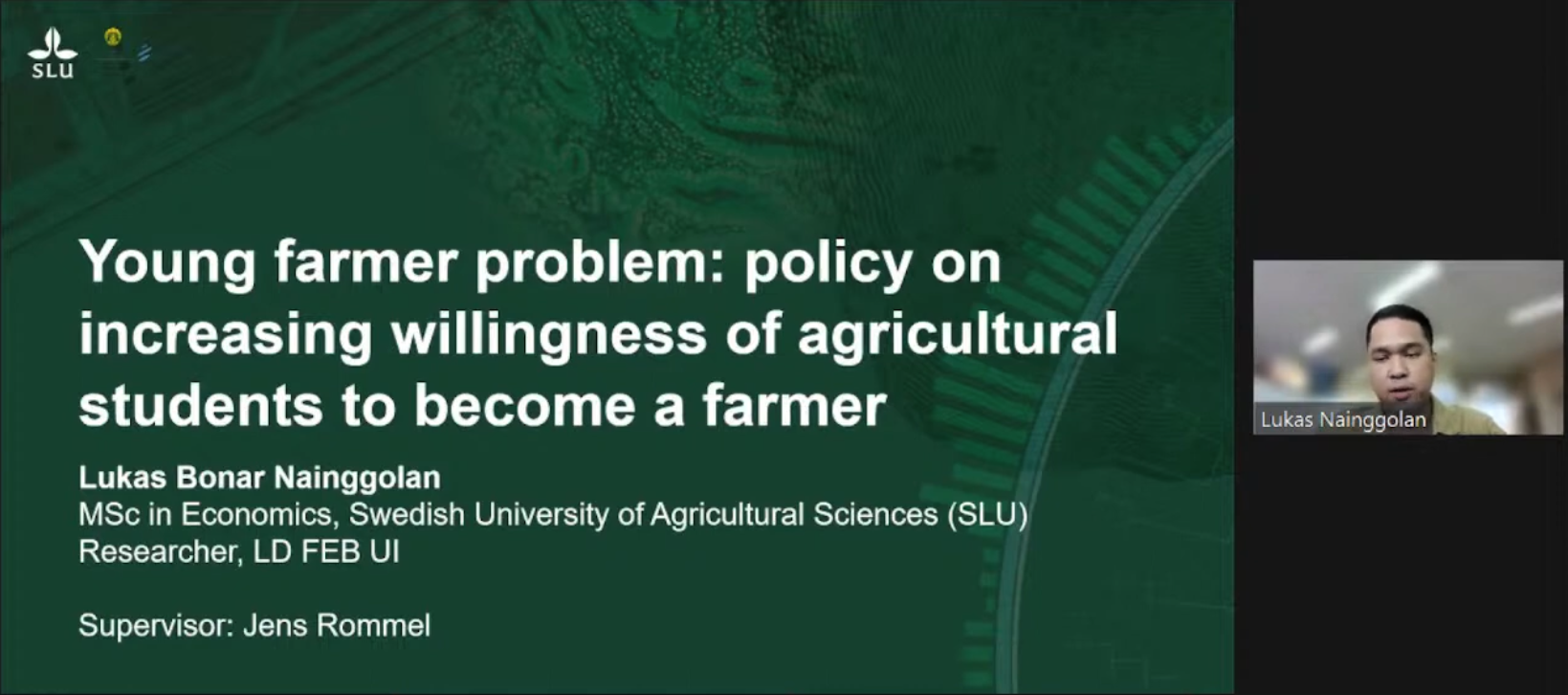FKP hosted by Lembaga Demografi FEB UI with Lukas Bonar Nainggolan (Lembaga Demografi, Faculty of Economics and Business, Universitas Indonesia). Wednesday, 24 August 2022.
KEY POINTS:
- The number of farmers in Indonesia is decreasing, which may impact food security as approximately 13 million people experience food insecurity in Indonesia. Why are young people not keen to become farmers? The primary objective of this research is to estimate the impact of agricultural students’ risk preferences on their willingness to become a farmer. Risk is an important factor behind someone’s decision to farm: the uncertainty of farming yield outcomes is known to pose greater personal risk than other occupations. Do youths who perceive themselves as risk takers have higher intention to become a farmer?
- This study found that there is no link between students’ risk preferences on their willingness to become a farmer. However, there is a link between familiarity with farming and social support with their willingness to become a farmer. The study also found that elicited risk preferences are relatively unstable and context-dependent.
SUMMARY
- The number of farmers in Indonesia is decreasing, which may impact food security as approximately 13 million people experience food insecurity in Indonesia. Youths would often view a career in farming as the last option which can cause problems, as older farmers are sometimes less productive, less efficient, and less willing to adopt sustainable practices.
- The primary objective of this research is to estimate the impact of agricultural students’ risk preferences on their willingness to become a farmer. This study surveyed 577 students of IPB University (previously known as Bogor Agricultural University) to elicit their risk preferences using the multiple price list experiment with two different framings (an agricultural and a non-agricultural task) in order to assess their willingness to become a farmer. Further, this study investigates whether framing the experimental task in a context familiar to respondents can better explain students’ willingness to become a farmer. Risk is an important factor behind someone’s decision to farm: farming has greater personal risk than other occupations, and youths who perceive themselves as risk taker may have higher intentions of farming. However, there are also indications that the sector attracts risk-averse people.
- The study found that there is no link between students’ risk preferences on their willingness to become a farmer. However, there is a link between familiarity with farming and social support in their willingness to become a farmer. The study also found that elicited risk preferences are relatively unstable and context-dependent. One implication of this finding is that the curriculum needs to make students more familiar with farming and introduce the risk and the anticipation of the possible problems. A change in social attitude is also needed, such as in viewing farming as an occupation. Encouragement from the teachers and the provision of capital/assets to young farmers from the government may be needed to boost the prestige of farming as an occupation.






